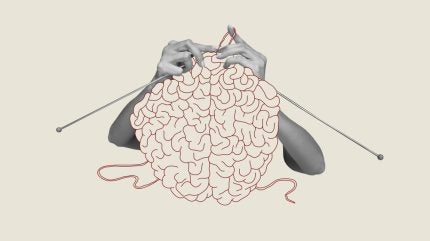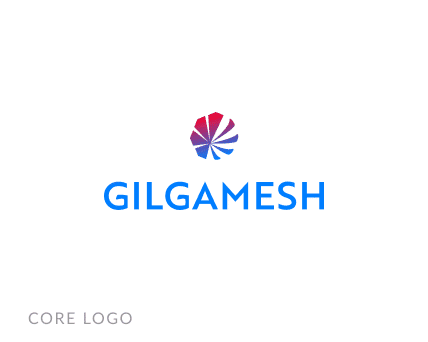预约演示
更新于:2025-10-19
GM-5022
更新于:2025-10-19
概要
基本信息
在研机构- |
权益机构- |
最高研发阶段终止临床前 |
首次获批日期- |
最高研发阶段(中国)- |
特殊审评- |
关联
100 项与 GM-5022 相关的临床结果
登录后查看更多信息
100 项与 GM-5022 相关的转化医学
登录后查看更多信息
100 项与 GM-5022 相关的专利(医药)
登录后查看更多信息
3
项与 GM-5022 相关的新闻(医药)2024-09-26
关注并星标CPHI制药在线
8月,FierceBiotech's 2024 Fierce 15(生物技术猛公司)榜单如期而至,在这个行业寒冬的特殊时期,极具创新精神的生物技术公司依然是耀眼夺目的新星。该榜单发布至今,聚焦创新型公司,涵盖不同技术领域,代表了未来产业新兴技术、产品的发展方向,今年发布的榜单包括细胞与基因疗法、小分子药物、放射疗法等治疗技术以及肿瘤、肥胖、神经退行性疾病等适应症领域,该榜单在一定程度上呈现了产业未来发展趋势。下面将逐个介绍上榜公司技术研发情况。
01
Abdera Therapeutics
Abdera Therapeutics成立于2020年,聚焦设计和开发可调的、精准的癌症放射性药物,成立至今,公司已完成总计1.42亿美元的A、B轮融资,包括Versant Ventures、Amplitude Ventures、venBio Partners等知名投资机构。随着诺华的Pluvicto、Lutathera相继取得商业化的巨大成功,核药领域逐步成为产业发展的热门赛道,各类大型制药企业和初创公司纷纷布局该领域,然而,该领域面临在研管线靶点过于扎堆的问题。多数项目均集中在诺华已上市核药的靶点--SSTR、PSMA。Abdera Therapeutics能够脱颖而出,得益于其扎实的技术实力,尤其是核心技术平台ROVEr™,该平台能够定制具有可调药代动力学(PK)特性的靶向放射性药物,以实现高肿瘤摄取,同时最大限度地减少肾脏暴露并减轻其他全身放射性毒性。其明星在研产品ABD-147目前进展最快,今年5月获得FDA批准的IND申请,具有快速通道认定资质。该产品是首 个靶向DLL3靶点的用于治疗小细胞肺癌和大细胞神经内分泌癌的药物,是新一代精准放射性药物疗法,通过将225Ac精准递送至肿瘤表面,从而杀灭肿瘤细胞。
图1 Abdera Therapeutics在研产品管线
02
Ascidian Therapeutics
Ascidian Therapeutics也成立于2020年,总部位于波士顿,致力于新一代RNA 疗法,由生命科学风险投资领域的领军企业(ATP)孵化,已完成近1亿美元的A轮融资。该公司主要通过在RNA层面上替换突变的外显子来治疗疾病,在保持天然基因表达模式和水平的同时,对大基因和具有高突变变异的基因进行靶向治疗,旨在提高基因治疗的持久性,同时降低与DNA编辑和操作相关的风险。基于改RNA外显子编辑平台,Ascidian Therapeutics围绕视网膜疾病、神经科学等领域开发出多个产品管线。今年6月,该公司宣布与罗氏达成一项针对神经系统疾病的RNA外显子编辑疗法合作协议,Ascidian Therapeutics将获得高达18亿美元的里程碑付款。ACDN-01是其进展最快的管线,是首 个获得FDA批准进入临床试验的RNA外显子编辑疗法,目前正在进行临床试验,主要用于治疗Stargardt病(黄斑萎缩性损害合并视网膜黄色斑点沉着)。
图2 Ascidian Therapeutics在研产品管线
03
BigHat Biosciences
BigHat Biosciences成立于2019年,总部位于旧金山,是一家基于人工智能技术的药物开发公司,利用机器学习和合成生物学为患者设计更安全、更有效的生物疗法,累计获得融资超亿美元。凭借Milliner的人工智能(AI)抗体设计平台,可以将湿实验室与机器学习结合起来,使每种抗体从计算机设计到表达、纯化和表征仅需数天时间,加快设计功能更复杂、具有更好生物物理特性的抗体,并有助于降低优化抗体和其他治疗性蛋白质的难度。BigHat Biosciences先后与默沙东、强生等头部企业达成合作,具有较强的技术创新能力。公司目前有7条在研产品管线,均处于早期研发阶段,作为平台型公司,BigHat Biosciences有望提供更加高效的药物发现服务。
图3 BigHat Biosciences在研产品管线
04
COUR Pharmaceuticals
COUR Pharmaceuticals运营时间较早,于2013年在美国成立,曾获得百时美施贵宝、辉瑞、罗氏等头部跨国药企投资,目前已完成超亿元A轮融资。COUR Pharmaceuticals致力于药物递送技术应用于自免疾病研究,通过专有的PLGA-Ag 纳米颗粒平台将疾病特异性抗原与免疫修饰纳米颗粒相结合,增加药物靶向性,靶向结合单核细胞后在脾 脏和肝脏发生细胞凋亡,从而释放出纳米颗粒包裹的疾病特异性抗原,激活免疫系统。COUR Pharmaceuticals已有多款产品进入到Ⅱ期临床试验,CNP-101进展最快,COUR Pharmaceuticals在2019年就该产品与武田制药达成合作开发权益,用于自免疾病乳糜泻治疗,Ⅱ期临床结果显示相较于安慰剂具有明显优势。CNP-106也进入到临床二期,用于成人重症肌无力的治疗,相较于免疫抑制药物,该药能够重新激活成人重症肌无力的免疫系统,有望从根本上治愈这类罕见的、严重的自免疾病。
图4 COUR Pharmaceuticals在研产品管线
05
Excision BioTherapeutics
Excision BioTherapeutics成立于2015年,公司专注于CRISPR技术在病毒感染领域的应用,通过开发先进的基因编辑疗法,解决HIV、乙肝、疱疹病毒等危及生命健康的医疗需求,2021年完成A轮6000万美元融资。Excision BioTherapeutics的核心管线EBT-101通过将HIV从机体基因中敲除,从而实现治愈HIV,是全球首 款基于 CRISPR 的体内基因编辑技术治疗 HIV 感染的药物,然而今年5月,EBT-101早期研究结果失败。此外,EBT-104、EBT-107等管线围绕单纯疱疹病毒性角膜炎和乙型肝炎等领域正在开展前期研究。
图5 Excision BioTherapeutics在研产品管线
06
Fauna Bio
Fauna Bio成立于2018年,是一家AI驱动的药物发现公司,其AI技术平台Convergence涵盖452种哺乳动物(含65种冬眠动物)基因组数据,通过分析来自冬眠生物学(及其他极端适应)的保护性适应数据,以识别人类用药靶点,能够发现在具高度未满足需求疾病中的潜在最 佳基因靶点,并能为广泛的治疗模式发现靶点,聚焦肥胖、心肺疾病、神经退行性疾病等领域。产品管线均处于早期阶段,其中在肥胖症领域,Fauna Bio在去年12月与礼来达成5亿美元合作,通过Convergence平台发现肥胖症临床前药物。
图6 Fauna Bio在研产品管线
07
Gilgamesh Pharmaceuticals
Gilgamesh Pharmaceuticals成立于2019年,专注于中枢神经系统疾病药物开发,包括抑郁症、焦虑症、药物成瘾及与压力有关的疾病,其技术平台Gilgamesh致力于发现新型神经致幻剂以及治疗药物组合,Gilgamesh Pharmaceuticals已完成8轮融资,在2022年12月获得近4000万美元的B++轮融资。在研产品GM-1020、GM-2505已进入Ⅱ期临床试验阶段,用于中毒抑郁症的治疗,GM-5022、GM-3009正在进行临床前研究。今年5月,Gilgamesh Pharmaceuticals与艾伯维达成合作,通过Gilgamesh技术平台,开发基于致幻剂的新一代精神疾病疗法,有望获得近20亿美元的里程碑付款。
图7 Gilgamesh Pharmaceuticals在研产品管线
08
iECURE
iECURE成立于2021年,是一家基因编辑疗法公司,聚焦与突变无关的体内基因插入或敲除编辑,用于治疗存在重大未满足需求的肝脏疾病,联合创始人为基因治疗领域的先驱James Wilson教授,通过利用基因插入和替换的方式,用健康基因替换缺陷基因,在患者体内进行基因编辑工作,成立至今已获得超1亿美元资助。其核心管线GTP-506是利用双载体AAV递送的基因疗法,用于治疗鸟氨酸氨甲酰转移酶(OTC)缺乏症,获得美国和欧盟孤儿药资质,已进入Ⅰ临床试验阶段。
图8 iECURE在研产品管线
09
ILiAD Biotechnologies
ILiAD Biotechnologies成立于2012年,致力于预防和治疗由百日咳博德特氏菌引起的疾病,是一家疫苗技术开发公司,成立至今已完成超1亿美元的融资。BPZE1是其进展最快的一款新一代百日咳疫苗,旨在克服现有疫苗存在的持久性有限和无法预防百日咳博德特氏杆菌感染婴儿等问题,今年5月在英国、澳大利亚和哥斯达黎加进行的涉及366名6-17岁儿童的超级试验中达到预期结果。
图9 ILiAD Biotechnologies在研产品管线
10
NodThera
NodThera成立于2016年,通过靶向NLRP3炎症小体治疗炎症驱动疾病,对帕金森和肥胖进行了深入研究,打破了常规的药物研发思路,最新研究表明,NLRP3炎症小体激活会导致促炎细胞因子IL-1β和IL-18的异常表达,针对NLRP3炎症小体可以从根源上抑制炎症而不是治疗症状,并且适用于任何由炎症成分驱动进展的疾病。NodThera的关键产品管线NT-0796在Ⅰ/Ⅱ期临床试验取得积极数据,可有效减少患者体内C反应蛋白(CRP)水平,使患者体重显著减少,NT-0249和NT-0150等产品管线正在进行临床试验。
图10 NodThera在研产品管线
此外,还有5家公司也针对不同领域,积极开展新技术新方法在药物研发中的应用。
Kimer Med成立于2020年,专注于开发广谱抗病毒生物制品,通过VTose技术平台,加快抗病毒生物制品研发;OMass Therapeutics成立于2016年,通过专有平台OdyssION并结合新颖的生物化学技术、下一代天然质谱法和定制化学方法,推进免疫学和罕见病领域药物开发;ProFound Therapeutics成立于2020年,由业内著名投资机构Flagship孵化,聚焦蛋白质组学领域,通过ProFoundry™技术平台发现了数以万计的新蛋白质,极大扩展了潜在的治疗靶点数量;Recludix Pharma成立于2019年,通过建立包括定制生成的 DNA 编码文库、结构活性关系的大规模并行测定以及确保化合物选择性在内的专有筛选工具平台,发现具有挑战性的蛋白质靶标的有效和选择性抑制剂,去年与赛诺菲达成超13亿美元的合作;Tubulis成立于2019年,专注于新一代ADC药物的开发,通过开发新型毒素分子、优化偶联方式等实现稳定的高药物-抗体比。
小结
FierceBiotech's 2024 Fierce 15榜单选取的公司,代表了未来新技术的发展方向,从上文可以看出,大多数公司均聚焦打破常规的新兴技术方法,随着部分创新成果的持续落地转化,未来有望颠覆某些传统治疗手段。从地域分布来看,上榜企业大多数为美国公司,表明欧美依然在新兴生物技术领域占据领先地位;从创始人来源来看,主要是投资机构和大学教授,他们往往更具有技术创新意识。
END
【智药研习社直播预告】
来源:CPHI制药在线
声明:本文仅代表作者观点,并不代表制药在线立场。本网站内容仅出于传递更多信息之目的。如需转载,请务必注明文章来源和作者。
投稿邮箱:Kelly.Xiao@imsinoexpo.com
▼更多制药资讯,请关注CPHI制药在线▼
点击阅读原文,进入智药研习社~
放射疗法基因疗法临床申请
2024-05-14
Neuroplastogens are compounds that induce rapid and long-lasting neuroplasticity without psychoactive side effects. Image credit: Shutterstock/ Master1305.
AbbVie
is making a push into the psychedelic frontier as it joins forces with US-based Gilgamesh Pharmaceuticals to target therapies for psychiatric disorders.
The collaboration, which includes an option-to-license agreement, will see AbbVie pay Gilgamesh $65m upfront. The psychedelic specialist is also in line to receive up to $1.95bn in aggregate option fees and milestones, as well as royalties.
The two companies will team up in the research and development phases of potential therapeutics for psychiatric disorders. AbbVie will take on development and commercialisation duties if it chooses to option a programme.
The number of
psychedelics being used in clinical trials
to treat psychiatric disorders is growing as
investment in the space
ramps up. However, the area is still in its infancy and, while some treatments have shown promising efficacy in addressing mental health disorders, many clinical ventures have been ineffective. Chief among the issues with many of these first-generation drugs can be unwanted psychoactive side effects such as hallucinations, says AbbVie.
Founded in 2019, Gilgamesh is developing neuroplastogens – agents that induce rapid and long-lasting neuroplasticity. These compounds could minimise the side effects seen with existing psychedelic compounds whilst still exerting clinical benefit, as per the company.
See Also:
Sanofi to make €1bn biomanufacturing investment in France
Rakovina expands collaborations to leverage AI platform
Gilgamesh currently boasts two Phase II clinical assets, notably GM-1020 and GM-2505, which are being evaluated for the treatment of major depressive disorder. GM-1020 is an oral NMDA receptor antagonist while GM-2505 is an agonist of the 5-HT2A (serotonin) receptor.
The pharma company is also working on an investigational new drug (IND) application for an oral non-hallucinogenic neuroplastogen named GM-5022.
AbbVie’s senior vice president and global head of discovery research Jonathon Sedgwick said: “Significant unmet need remains for people living with psychiatric disorders and we know that to innovate in this field, we need to pursue novel technologies and approaches.”
Classic hallucinogens such as LSD and psilocybin are often categorised separately from dissociative drugs. While both classes of drugs belong under the psychedelic umbrella, their effects differ. Hallucinogens cause distortions in perception of reality, whilst dissociative drugs cause a disconnect between mind, body, and environment.
The psychedelic market is largely dominated by
Johnson & Johnson
’s dissociative drug Spravato (esketamine), which was
approved in 2019
for addressing treatment-resistant depression. The drug made $700m last year and sales are estimated to grow to $2bn in 2029, according to GlobalData’s Pharma Intelligence Centre.
GlobalData is the parent company of
Pharmaceutical Technology.
There are currently no FDA-approved ‘classic psychedelics’, though the space is gearing up for a landmark review in June this year when Lykos Therapeutics’s MDMA-mediated therapy goes under the FDA examination lamp. The biotech’s upcoming meeting with the FDA’s Psychopharmacologic Drugs Advisory Committee (AdCom) will mark the first time FDA experts formally debate a psychedelic treatment.
The speed of the market’s growth could hinge largely on the outcome of the AdCom meeting, though public perception towards psychedelics – which is
still mixed
– could yet prove a major obstacle to the treatment’s widespread implementation.

临床2期引进/卖出上市批准
2024-05-13
AbbVie is teaming up with Gilgamesh Pharmaceuticals in a deal worth up to $2 billion to develop a new class of drugs designed to treat psychiatric disorders without the psychoactive side effects that can be induced with first-generation psychedelics.The pharma will harness Gilgamesh's research platform to create neuroplastogens that mimic the therapeutic potential of classic psychedelics, while avoiding hallucinations and eliminating the need for in-office administration and supportive care.Already a heavyweight in neuroscience, AbbVie says there's still significant unmet need for people living with psychiatric disorders. "We know that to innovate in this field, we need to pursue novel technologies and approaches," said Jonathon Sedgwick, the company's global head of discovery research, adding that neuroplastogens could "pave the way for additional treatment approaches in psychiatry."According to AbbVie, neuroplastogens target mechanisms that have shown potential to provide significant clinical benefits while minimising the challenging effects seen with first-generation psychedelics. Gilgamesh's platform leverages complex behavioural models, electrophysiology and molecular measures of neuroplasticity, while machine learning algorithms help to systematically map the bioactivity of psychoactive compounds.AbbVie and Gilgamesh will research and develop a portfolio of next-generation therapeutics for psychiatric disorders. Gilgamesh will receive an upfront payment of $65 million and is eligible for up to $1.95 billion in option fees, milestones, and tiered royalties on net sales. Upon exercising its option, AbbVie will lead development and commercialisation activities.Gilgamesh's internal pipeline features one neuroplastogen: GM-5022, an oral non-hallucinogenic compound in early development for depression and anxiety. Its two lead programmes are GM-1020, an oral NMDA receptor antagonist, as well as the short-acting 5-HT2A agonist GM-2505, both of which have moved to Phase II in major depressive disorder. The company previously raised $27 million and $39 million in successive series A and B rounds.
临床2期引进/卖出
100 项与 GM-5022 相关的药物交易
登录后查看更多信息
研发状态
10 条进展最快的记录, 后查看更多信息
登录
| 适应症 | 最高研发状态 | 国家/地区 | 公司 | 日期 |
|---|---|---|---|---|
| 焦虑症 | 临床前 | 美国 | 2024-05-08 | |
| 抑郁症 | 临床前 | 美国 | 2024-05-08 |
登录后查看更多信息
临床结果
临床结果
适应症
分期
评价
查看全部结果
| 研究 | 分期 | 人群特征 | 评价人数 | 分组 | 结果 | 评价 | 发布日期 |
|---|
No Data | |||||||
登录后查看更多信息
转化医学
使用我们的转化医学数据加速您的研究。
登录
或

药物交易
使用我们的药物交易数据加速您的研究。
登录
或

核心专利
使用我们的核心专利数据促进您的研究。
登录
或

临床分析
紧跟全球注册中心的最新临床试验。
登录
或

批准
利用最新的监管批准信息加速您的研究。
登录
或

特殊审评
只需点击几下即可了解关键药物信息。
登录
或

生物医药百科问答
全新生物医药AI Agent 覆盖科研全链路,让突破性发现快人一步
立即开始免费试用!
智慧芽新药情报库是智慧芽专为生命科学人士构建的基于AI的创新药情报平台,助您全方位提升您的研发与决策效率。
立即开始数据试用!
智慧芽新药库数据也通过智慧芽数据服务平台,以API或者数据包形式对外开放,助您更加充分利用智慧芽新药情报信息。
生物序列数据库
生物药研发创新
免费使用
化学结构数据库
小分子化药研发创新
免费使用
